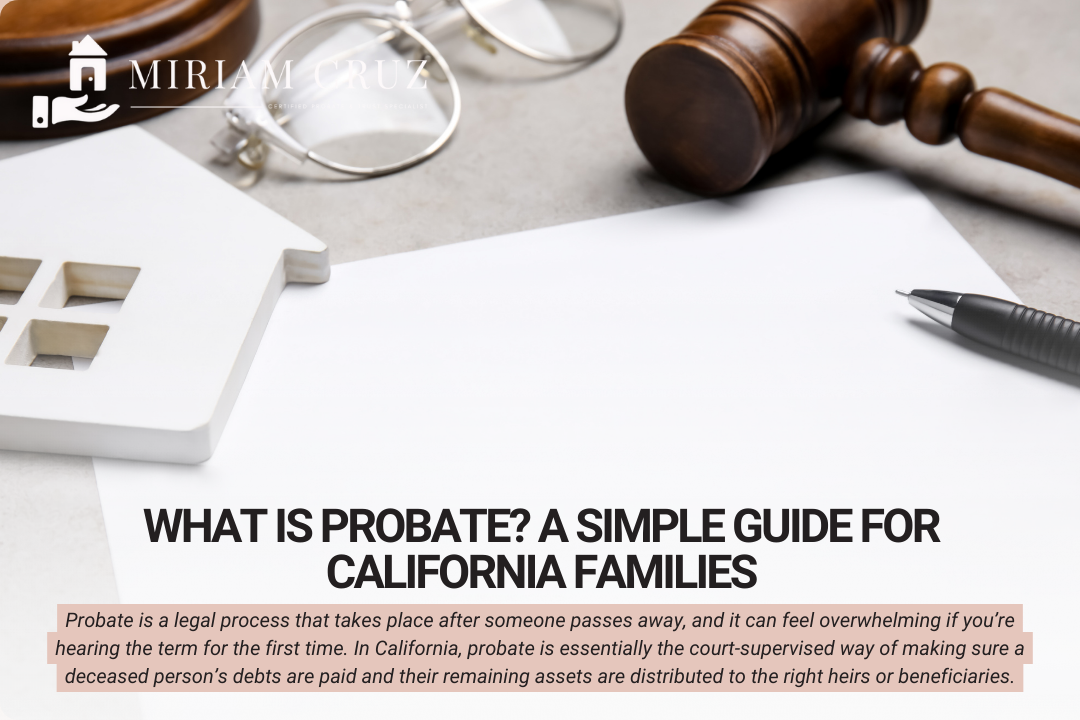
Executor vs Administrator in California Probate: What’s the Difference?
When a loved one passes away and probate is required, the person responsible for managing the estate is either called an executor or an administrator. While these roles share many responsibilities, the way each is appointed and the authority they receive depends on whether a valid will exists. Understanding the difference between an executor and an administrator helps families navigate the probate process with greater confidence and clarity, especially when real estate or significant assets are involved.
An executor is the individual named in a will to carry out the deceased person’s wishes. Once the court validates the will and appoints the executor, they are responsible for securing assets, managing property, paying debts, communicating with beneficiaries, and distributing the estate according to the will’s instructions. Executors must follow court procedures and maintain accurate records throughout the probate process. Even with a will in place, court oversight is often still required when assets are held solely in the deceased person’s name.

Why Every Family Needs an End-of-Life Plan — Even When It’s Hard to Talk About
Avoid probate, family conflict, and costly court battles. Learn how end-of-life planning protects your family and download a free planning guide.

When Do You Have to File for Probate in California?
Learn when probate is required in California, what triggers the probate process, and how inherited property is handled. Expert guidance from Certified Probate & Trust Specialist Miriam Cruz.

How Long Does Probate Take in California?
Probate in California can feel like a marathon rather than a sprint, and families often ask, “How long will this take?” The truth is, it depends on the complexity of the estate and whether any disputes arise. On average, probate takes anywhere from 9 months to 18 months, but it can be shorter or much longer in certain situations.

What is Probate? A Simple Guide for California Families
Probate is a legal process that takes place after someone passes away, and it can feel overwhelming if you’re hearing the term for the first time. In California, probate is essentially the court-supervised way of making sure a deceased person’s debts are paid and their remaining assets are distributed to the right heirs or beneficiaries.

Marry the house, date the rate
The monthly payment may seem intimidating and waiting until rates come down might appear like the safer choice. In reality though, timing the housing market is nearly impossible. In my experience, what matters most is securing the right home, in the right location, for your needs while keeping in mind that interest rates aren’t forever. That’s where the popular phrase comes in: “Marry the house, date the rate.”
